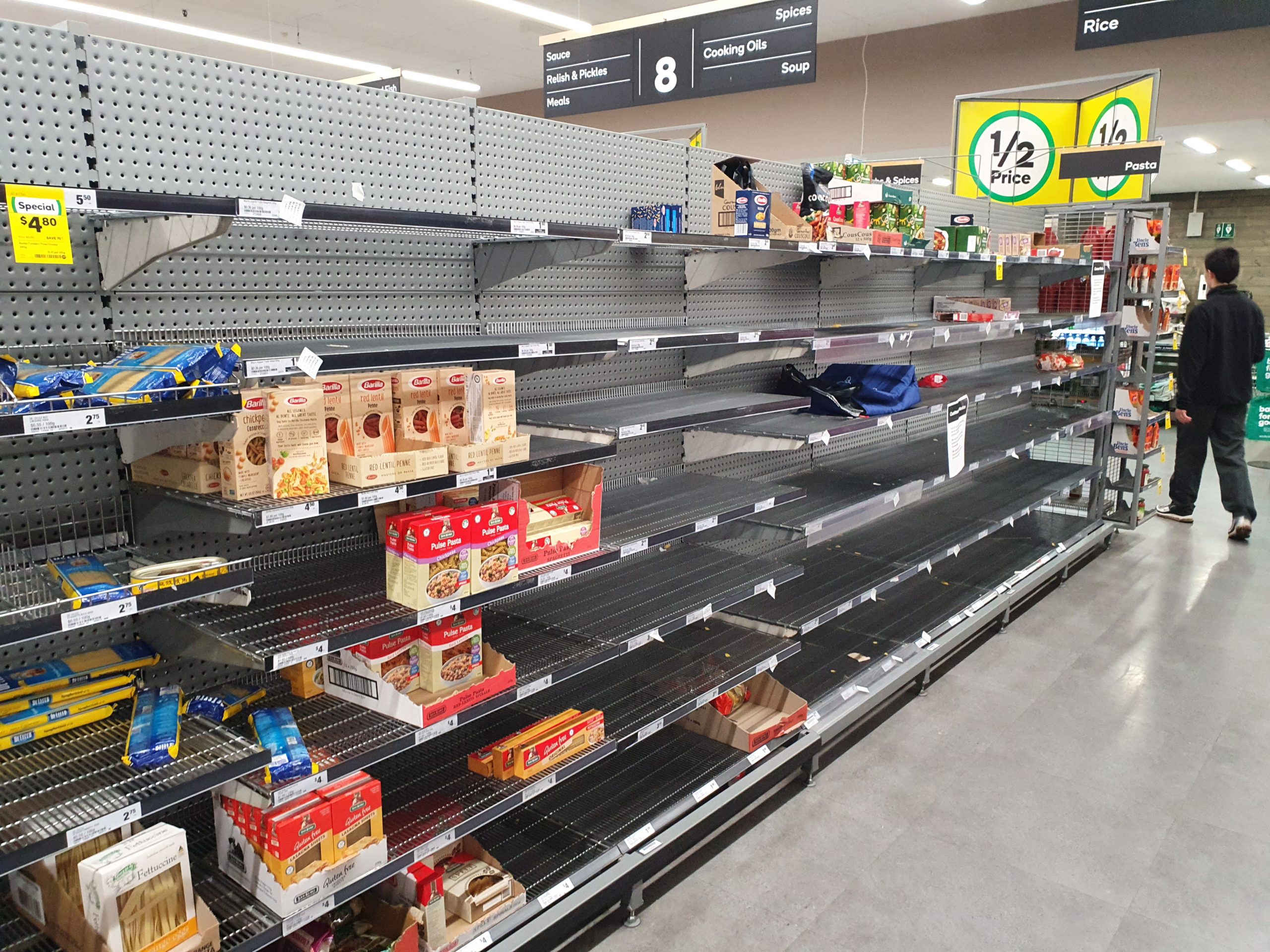The COVID-19 pandemic panic has caused an eerie, post-apocalyptic scene to become commonplace across the country: supermarkets with barren shelves. One would think that this is the time for an intervention to ensure that stores stay stocked with the things we need, but governors nationwide are taking the opposite approach.
This includes Michigan, Wisconsin, and Oregon. Several other states connect price controls to declared states of emergency, as well. Despite their good intentions, policies meant to curb price gouging will perpetuate shortages of high-demand goods such as toilet paper, hand sanitizer, and rice.
Why? For example, Michigan Governor Gretchen Whitmer’s order states that “a person must not offer for sale or sell any product in this state at a price that is more than 20% higher than what the person offered or charged for that product as of March 9, 2020, unless the person demonstrates that the price increase is attributable to an increase in the cost of bringing the product to market.”
Price controls are meant to be fair, but they rarely accomplish that goal. By freezing prices in time, the governor has made it impossible for retailers to respond to increased demand. As a result, prices will stay the same, and people will keep hoarding high-demand goods. Thus, some will have an abundance while others are forced to go without.
Prices are a means by which society rations scarce goods. True, everyone needs toilet paper. But no one needs 12 packages of toilet paper. If demand is 10 times greater, so should the price be. The best means by which stores make sure everyone has enough are stigmatized under the label of “price gouging.”
This much probably makes sense, but there are a few objections that likely lead to these well-intentioned executive orders.
First and most important, some people are better able to pay higher prices than others. In particular, just like sales taxes, price increases are regressive. In proportion to a person’s income, they hurt the poor more than anyone else.
However, price fixing is not the only possible solution. Charitable persons and organizations can purchase needed goods for the higher price, then sell them to the poor at a discount or even give them away. Where feasible, governments could subsidize high-demand goods with vouchers or increased SNAP benefits for low-income buyers, as well.
It should also be noted how unlikely it is that the people currently hoarding goods take public transportation to the grocery store. No one is riding the bus home with a metric ton of rice. So, the current distribution of high-demand goods is likely regressive already, hurting the poor more than anyone else.
Second, perhaps stores could impose their own limits on purchase quantity while prices are artificially below the market price. While that might sound good on paper, it is easy to get around and difficult to enforce.
Many retailers use self-checkout machines, which would have to be specially reprogrammed to limit the quantity of, for example, hand sanitizer a single buyer can purchase. But even that couldn’t prevent a person from spreading out the goods between members of their family in order to purchase more. Indeed, I witnessed this at a local Meijer store in Grand Rapids, Michigan, on Sunday where the paper towels had been almost completely cleaned out despite a sign saying “limit two per customer.” The last alternative would be draconian enforcement of the rule by retail workers, increasing customer frustration for people who are already heroically showing up to work in the midst of a pandemic.
This leads me to one last objection: Why should stores profit off of normal people’s desperation? It’s true that, to the extent price increases simply reflect demand rather than “the cost of bringing the product to market,” stores would increase their profits as a result of rationing high-demand goods through higher prices. But why is that bad?
Retail workers can’t work from home, and retail jobs generally aren’t high income. Increased profits could mean wage increases or bonuses for low-income workers. In this way, allowing demand-driven price increases could itself be a way of ensuring that at least some low-income buyers have the extra cash they need to buy the same goods.
While I personally prefer private solutions to problems like this in times of crisis, to the extent that the state needs to get involved as a matter of subsidiarity, it would do better to focus on finding ways to increase the buying power of the poor rather than perpetuating shortages through price controls to the detriment of the common good.
(Photo credit: Christopher Corneschi. CC BY-SA 4.0.)
